
I’m going to share my journey from lawyer to teacher to cake decorator and content creator to show you that whatever path you start on, it’s possible to turn a hobby into a career and generate an income doing something you love. I’ll share seven steps to take you to your dream career, even if you don’t know what that is yet!
I should start by mentioning that creating cake videos was never part of my plan – until a few years ago I don’t think I had ever even watched a YouTube video! So if you’re not sure which hobby you want to turn into a job, or what that job could be, don’t worry, we’re going to cover that too! Let’s dive into the seven steps to turn your hobby into a career.
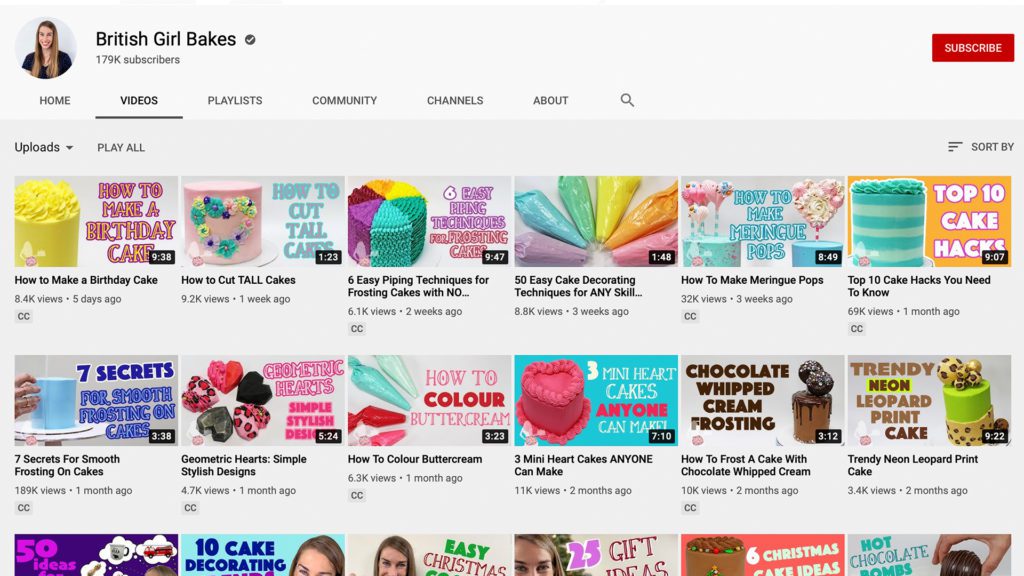
Step 1: Have a backup plan
When I was sixteen I told my parents I didn’t want to go to university, I wanted to start a stud farm and breed horses. I’m glad they didn’t listen to me because I had no idea what I was talking about. If you’ve had experience doing something and you make an educated decision to pursue it, great! But it’s always good to have a backup plan in case things don’t turn out the way you expect.
For me, this meant going to university and getting a degree that I could fall back on if I changed my mind. Which I did about five minutes later!

Step 2: Experiment and try different things
Some people have always had a dream. If you play the guitar, maybe you’ve always wished you could play in a band. If you like ice skating maybe you’ve daydreamed about skating in the Olympics. But if you’re not sure, don’t be afraid to branch out and try different things. If you’re not sure where to start, think about what you’ve done that you’ve enjoyed – it could be a hobby you did in the past but had to give up for some reason, or it could be something you’ve always been interested in but never had the time to take up.
I thought I wanted to teach so I taught English in Costa Rica and loved teaching but I wasn’t passionate about language. I enjoyed cooking so I branched out to try baking and that’s where I found my passion.
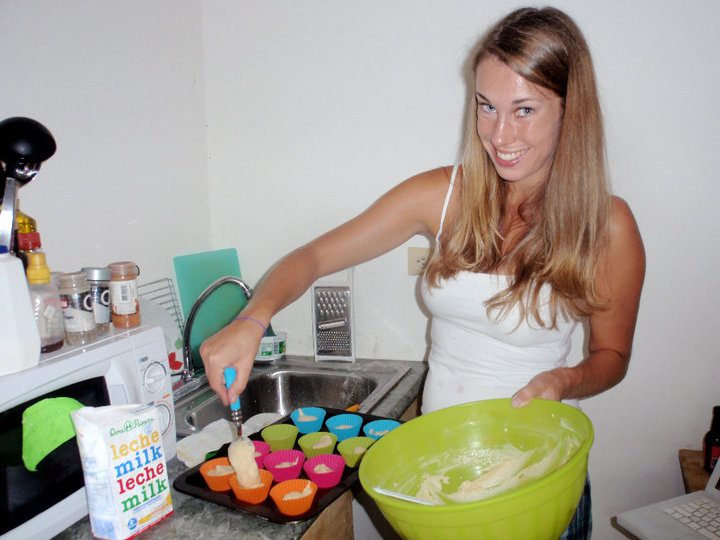
Step 3: Don’t be afraid to be different
As all of my friends graduated and moved to London to start their corporate careers, I moved to Costa Rica and opened a cake shop and I’ve never looked back!
I’m not saying you should be reckless or do something just because it’s different, but if what you want to do isn’t the same thing everyone else is doing, don’t let that be the thing that prevents you from going for it.
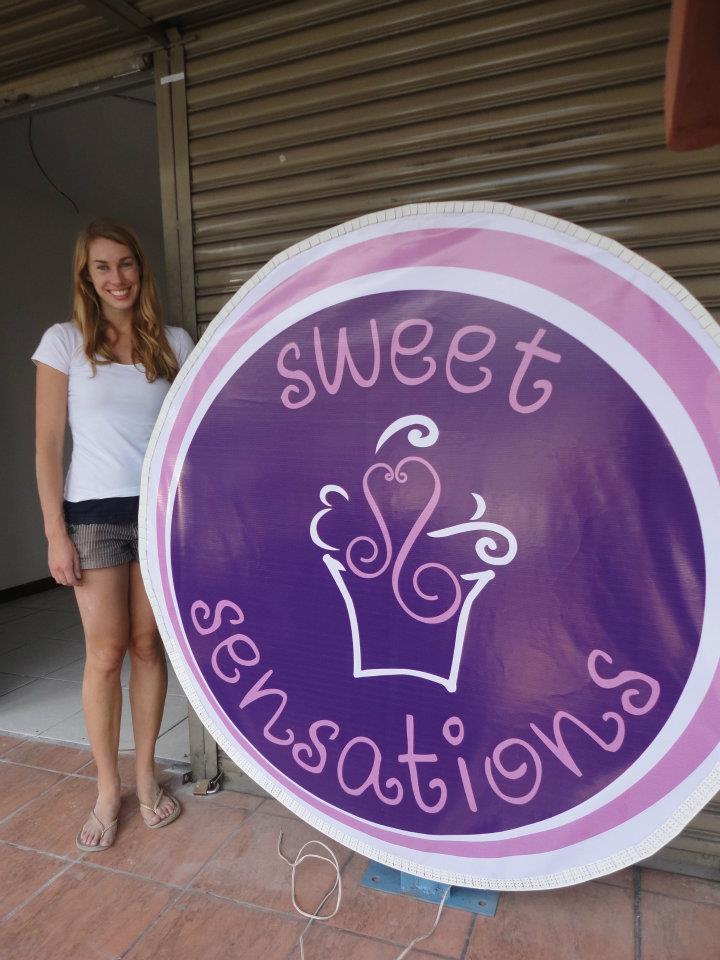
Step 4: Brainstorm job options
Yes, you want to spend your time doing whatever your hobby is – guitar, ice skating, baking. But for every hobby there are LOTS of options of how to use it to earn money. If you play the guitar you can do live performances, you can teach others how to play the guitar, you can write music, produce music, record music… and you might choose to find employment in the field you choose or you might start your own business.
In my case, I started a small at-home business taking custom cake orders and then I opened a cake shop and cafe. I moved to Los Angeles and managed another company’s cake shops and opened new locations for them and then started teaching how to decorate cakes and THAT was where I found my passion. In my case, I tried a lot of ways to turn my hobby into a career but you can save a lot of time if you brainstorm your options first!

If you’re not sure which hobby would be the most fulfilling as a job, or which strengths or skills you have to make the job a success, I really recommend looking into the classes on Skillshare to figure that out. Skillshare has thousands of inspiring classes on entrepreneurship to help you get started setting up your business or if you’re not quite there yet, develop your hobbies with classes on watercolor painting, portrait photography, singing… it’s less than $10 a month with an annual subscription and you can get a free trial of Premium Membership by clicking here. I hope that helps you in your journey of choosing a hobby and a job and we’ll move onto the next steps for that now.
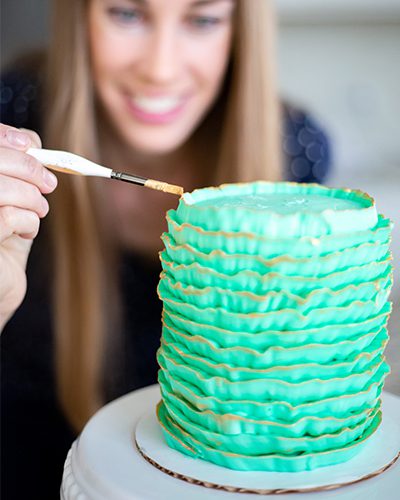
Step 5: Get a second opinion
Once you’ve brainstormed ideas and chosen what job you want to do with your hobby, it’s time for a second opinion. You enjoy your hobby and you want to turn it into a job so you’re looking at your web of ideas with rose tinted glasses.
Is there a market for whatever it is you want to do? You don’t need specific numbers or in depth market research but find out if there are people who will want to buy your product or service. You can search for groups on Facebook or discussion forums or look for other people or businesses doing something similar to see if there’s an interest or need.
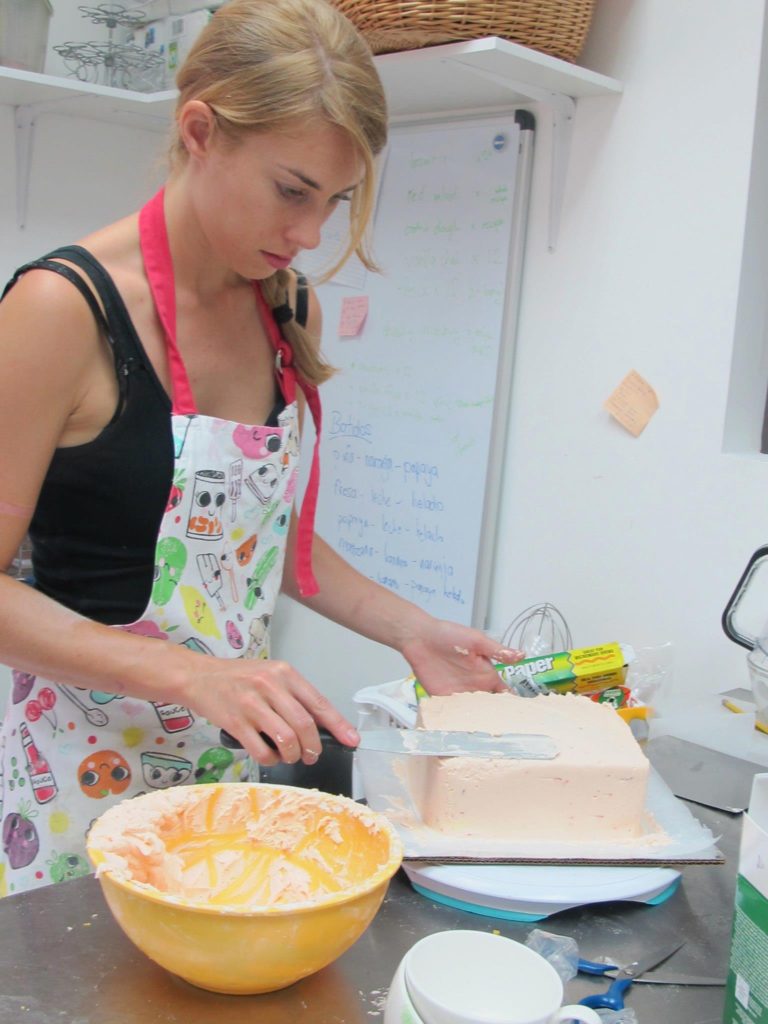
Equally importantly, and this is really difficult to judge yourself: are you good at whatever it is you’re planning on doing?
Yes, you might need practice – this is one of my first cakes and I’ve come a long way since then. You’ll gain experience and skills along the way but do you have the skillset necessary to start making money doing what you want to do, or at least have the potential to be good at it? Take a realistic look at that and ask someone who you know will be honest with you.
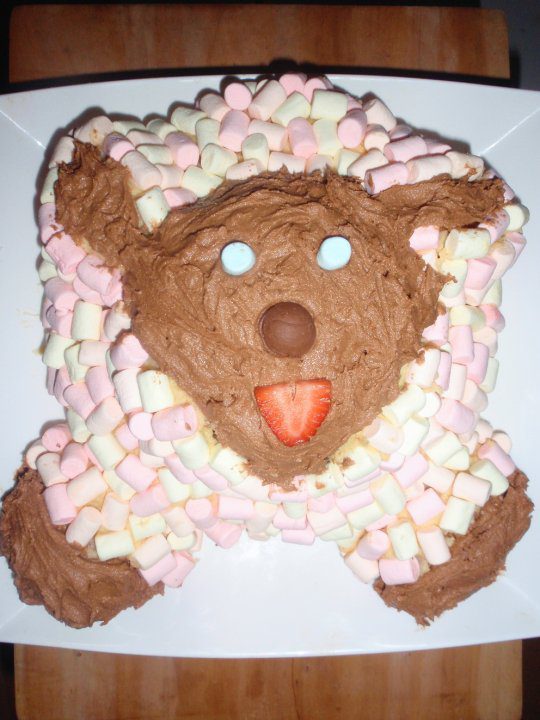
Step 6: Triple check
After choosing what exactly it is you want to do and getting a second opinion, before you commit to turning your hobby into a job and moving on to the next steps, it’s a good idea to pause and really think about three things:
1. Do you really want this?
It’s going to take a LOT of effort with long days and maybe nights. It will probably be an emotional roller coaster and before you start the marathon you should be confident that you’re going to be satisfied when you get to the finish line. For me, when I was teaching in Costa Rica and baking in my spare time to make birthday cakes for friends and students, I played with the idea of starting a cake business. I kept teaching and baking on the side and when I still enjoyed it after a year, I started to seriously consider turning it into a job.
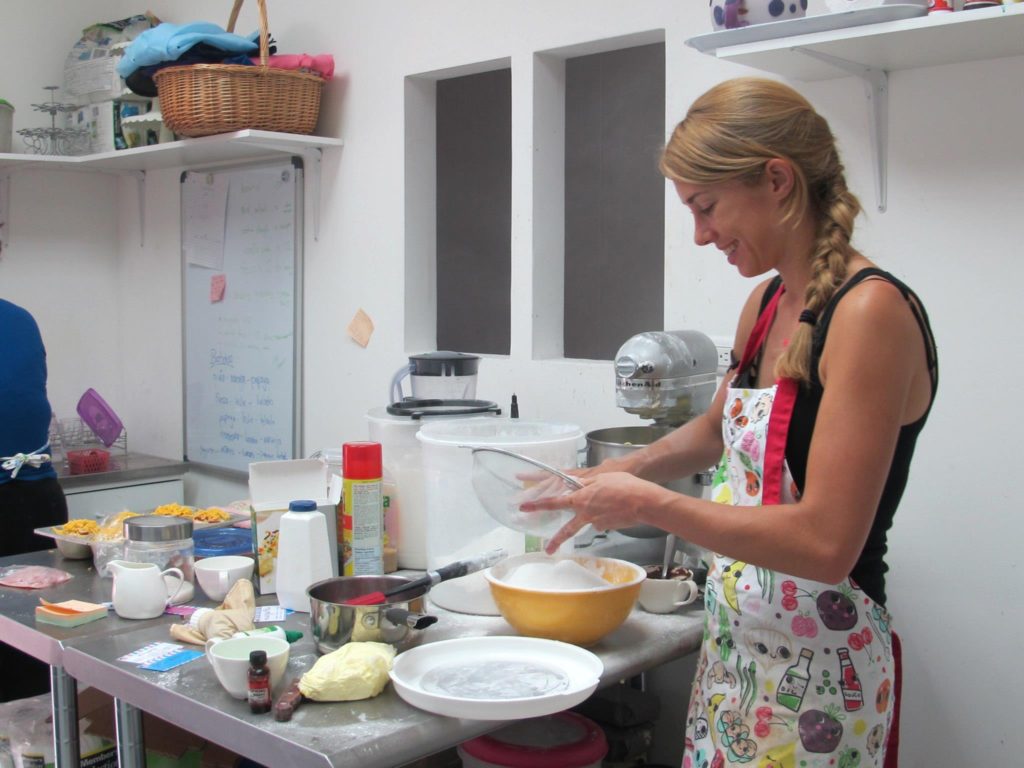
2. Can this hobby make money?
The second thing to think about is whether your hobby has the potential to be profitable. If you’ve been doing it for a while you probably have a network of contacts and maybe even people who already pay you to perform, whether it’s playing the guitar in a cafe or assisting coaching kids at an ice skating rink.
This will give you an idea of how much you can charge for what you do and how many clients or customers you’ll need into order to generate the income you need.
Of course, it will take you a while to get there and your income will grow over time, but before you pour your heart and soul into it, make sure it’s feasible.
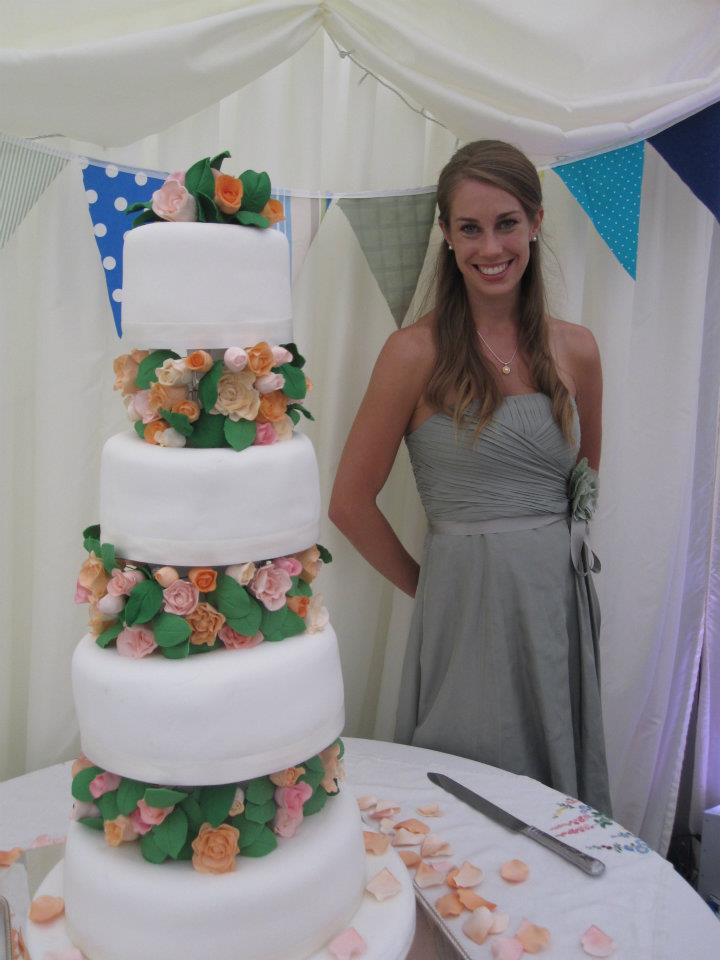
3. How are you going to do this?
I started taking orders while working a full time job, to test things out. When I stopped teaching I took cake orders from home and after another year, only when I had enough customers and orders that I couldn’t physically fit the orders into my house, I opened a cake shop.
If you already have a full time job, do you have time to start your hobby job on the side? If you’ve already started building up a client base or have some regular gigs, can you afford to work part time at your current job so that you can dedicate more time to your new venture? Can you take some time off work to get yourself set up? Do you have savings to invent or will you need a loan? Figure out the practical details, give yourself a to-do list, and use your passion to motivate you to turn your hobby into a job.
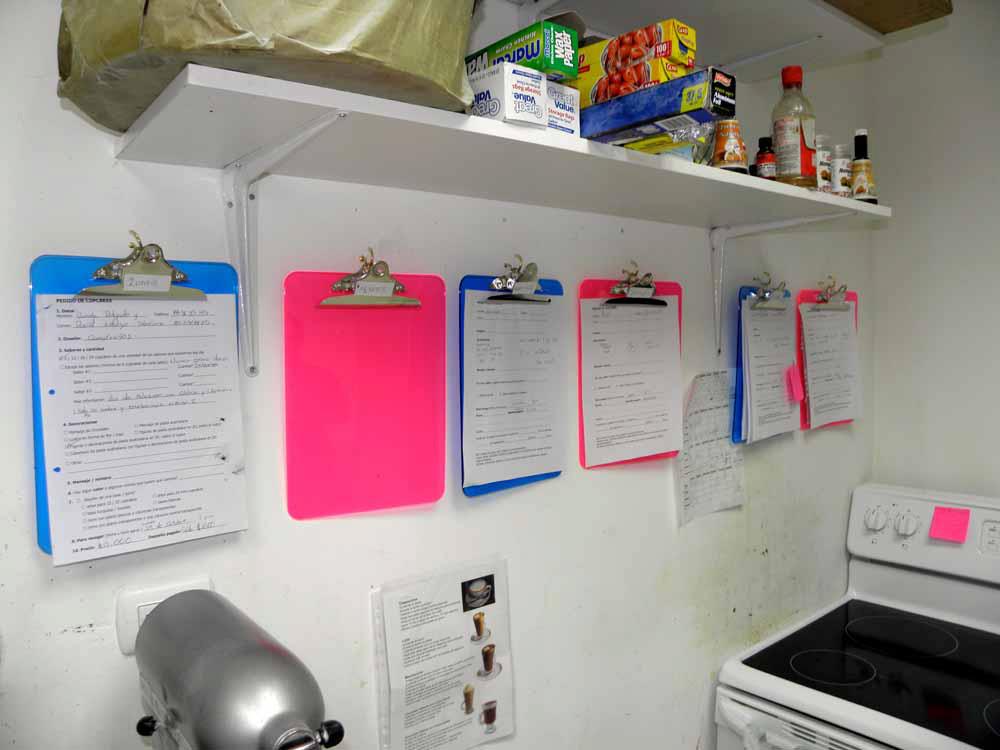
Step 7: Become successful!
There are endless ways to be successful with your hobby and ideally you’ll be able to turn it into a full time job and then into a fulfilling and profitable career. Find ways to stand out by being different: offer something new that can’t be found anywhere else, or include something in your product or service that competitors don’t. Target a group of customers with something tailored towards them and their needs – ice skating lessons specifically for kids with lots of energy, or guitar lessons designed for people with anxiety.
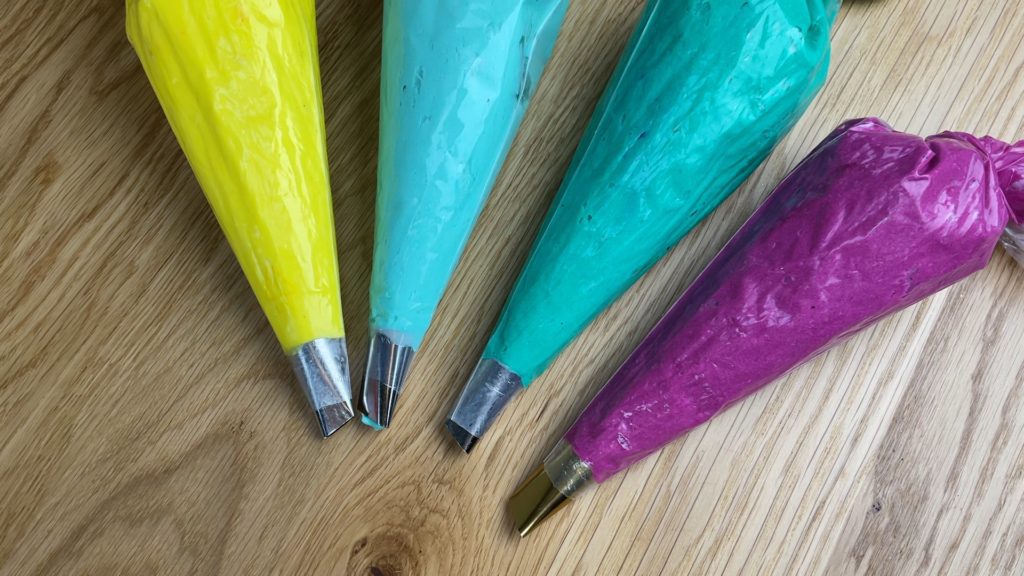
As an example, the cake tutorials and courses I found online that were supposed to be for beginners were sometimes too complicated for me to follow even after several years of decorating cakes, or they skipped steps because it was assumed that that step was obvious. So I started creating videos that ANYONE could follow, even with no cake decorating experience, and I think that’s what makes my tutorials and courses popular.
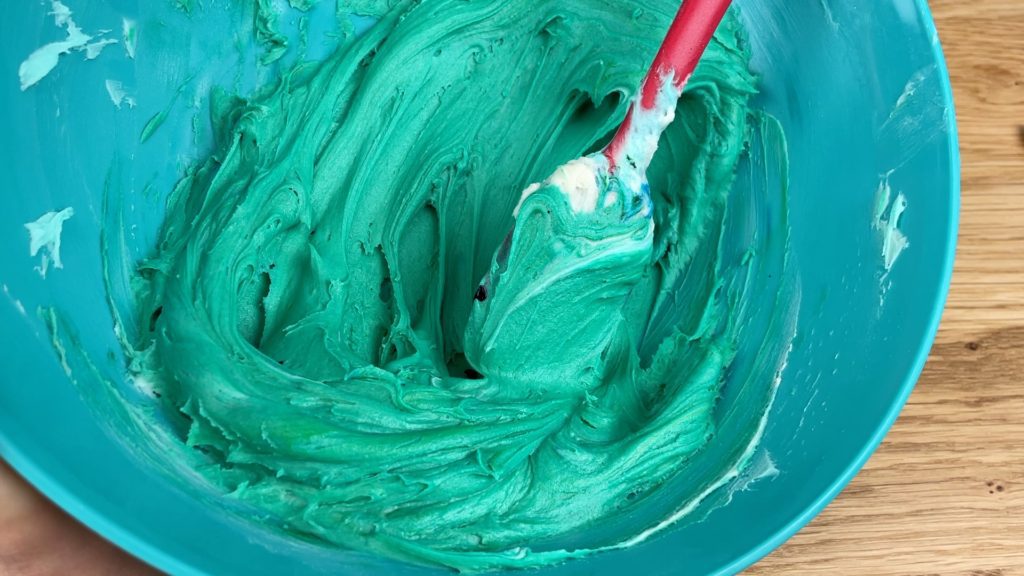
So these are the 7 steps to follow to turn your hobby into a career. I hope you’ll share in the comments what you decide to do and come back and tell me what you did!
If you’re looking for cake inspiration, join my Club for access to ALL of my online classes as well as live online classes and Q&A sessions for members only!
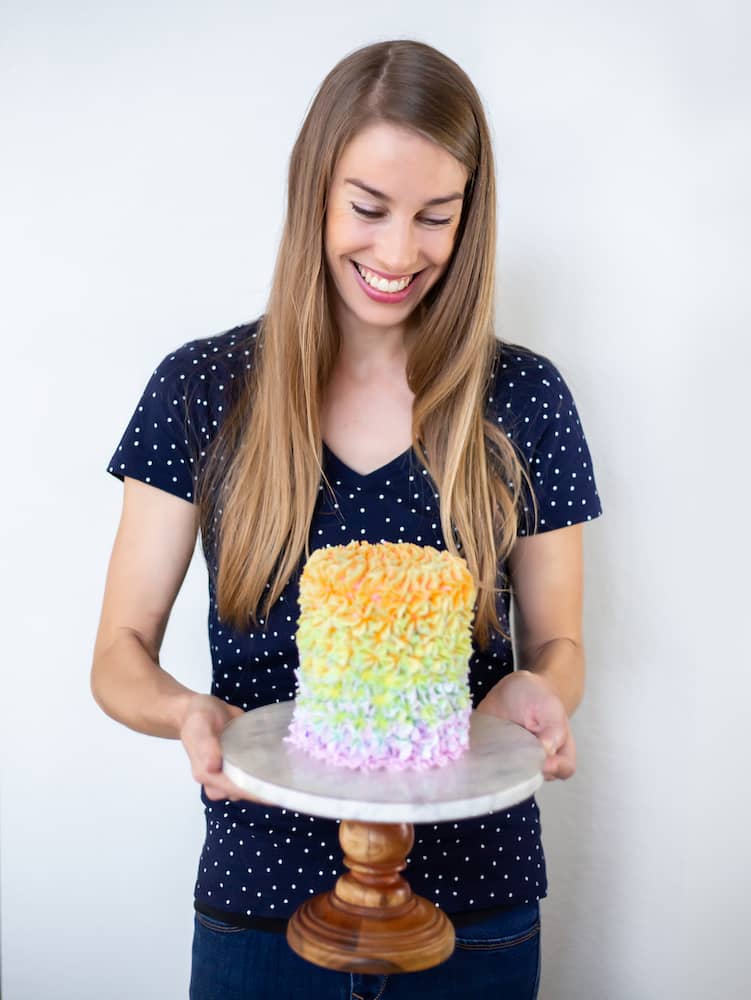
Here’s the video version of this tutorial:
